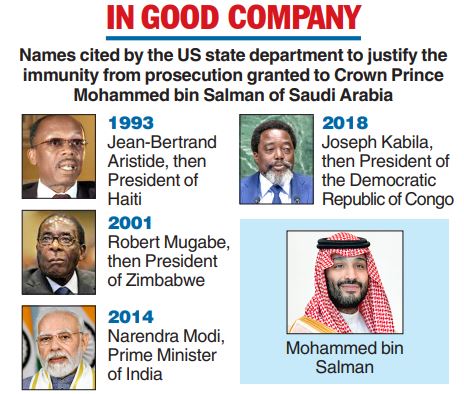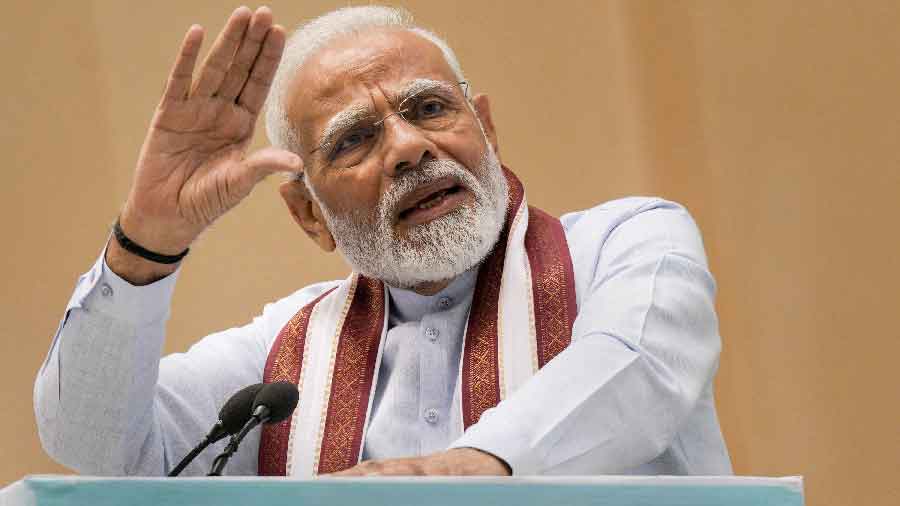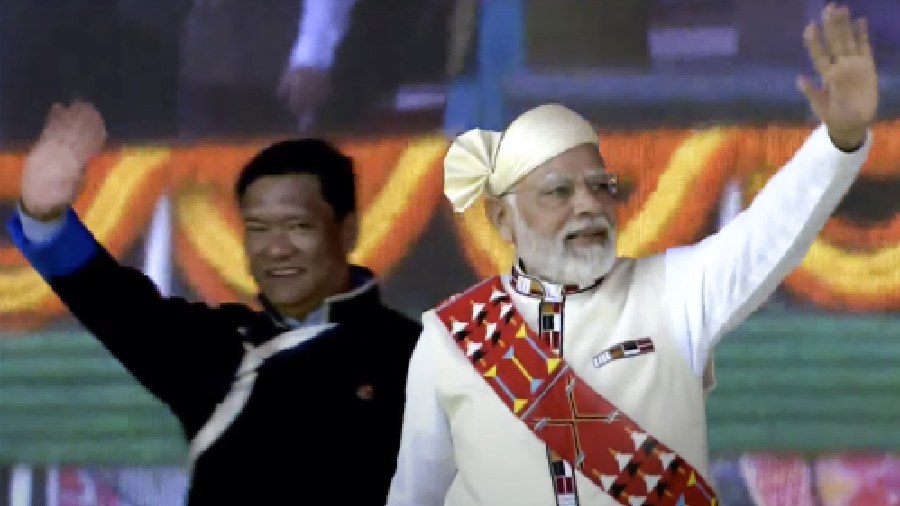The US state department spokesman on Friday flagged the nine-year visa ban on Prime Minister Narendra Modi from 2005 till 2014 as he tried to contextualise his government’s decision to grant sovereign immunity to Saudi crown prince Mohammed bin Salman (MBS) over the October 2018 murder of dissident journalist Jamal Khashoggi.
Earlier in the day, the Joe Biden administration had informed a US court that MBS — recently appointed Prime Minister — should be given sovereign immunity in the civil case because he was “the sitting head of government and, accordingly immune” from the case.
Questioned about this grant of immunity to MBS and asked whether the privilege would be extended to other heads of state or government, state department principal deputy spokesperson Vedant Patel said this was “not the first time that the United States has done this”.
“It is a longstanding and consistent line of effort. It has been applied to a number of heads of state previously,” he said.
“Some examples: President Aristide in Haiti in 1993, President Mugabe in Zimbabwe in 2001, Prime Minister Modi in India in 2014, and President Kabila in the DRC (Democratic Republic of the Congo) in 2018. This is a consistent practice that we have afforded to heads of state, heads of government, and foreign ministers.”

On Friday, the US department of justice had told the court: “The doctrine of head of state immunity is well established in customary international law and has been consistently recognised in longstanding executive branch practice as a status-based determination that does not reflect a judgment on the underlying conduct at issue in the litigation.”
The George W. Bush administration had denied Modi, then Gujarat chief minister, a visa to travel in his official capacity in 2005 in view of the 2002 Gujarat carnage. The visa ban remained in place through the Obama years till Modi was elected Prime Minister.
The ban was lifted before Modi was sworn in, and Obama invited him to visit Washington during a congratulatory call after the results were declared. Despite its political differences with the BJP, the then UPA government had picked up the cudgels for Modi in 2005. The external affairs ministry had summoned the US deputy chief of mission to convey a strong demarché relating to Washington’s decision to not only deny the chief minister a visa but also revoke other categories of visas already issued to him.
“Our government has clearly pointed out our very deep concern and regret over the US decision to deny a visa to a constitutionally elected chief minister of a state of our Union. We have observed that this uncalled-for decision betrays a lack of sensitivity and due courtesy to an elected authority,” then Prime Minister Manmohan Singh had informed the Rajya Sabha on March 19, 2005. He had added: “The US government has been clearly told of our concern at this development. We have also called for the urgent reconsideration of this decision by the United States government. The American government has also been clearly informed that while we respect their sovereign right to grant or refuse visas to any person, we do not believe that it is appropriate to use allegations or anything less than due process to make a subjective judgment to question a constitutional authority in India.”
Modi was cleared of all charges by courts in India. Khashoggi, a critic of MBS, is said to have been killed by Saudi agents in the Saudi consulate in Istanbul.











